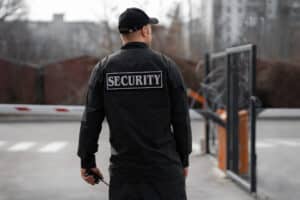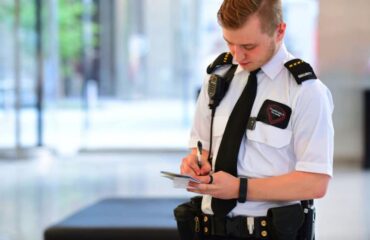Security guards are vital for protecting public spaces, combining vigilance, advanced technology, and professional training to ensure safety, manage crises, and foster secure environments in Vancouver and beyond.
Introduction to the Role of Security Guards in Public Safety
Security guards play a pivotal role in the protection and safety of public spaces. These trained professionals are the first line of defense against potential threats, ensuring a safe environment for people to gather, work, and live. In this article, we will explore the various responsibilities of security guards, the strategies they employ to secure public areas, and the challenges they face in their day-tough duties.

BestWORLD is Canada’s premiere Security Services and security guard in Vancouver, BC
Primary Responsibilities of Security Guards
The primary duty of security guards is to protect people and property. This involves a range of responsibilities, from monitoring security systems and conducting surveillance to managing crowds and responding to emergencies. Guards must be vigilant at all times, using their training to spot signs of suspicious activity and to take appropriate action to prevent harm or disruption in public settings.
Surveillance and Monitoring
One of the key functions of security guards is the surveillance of public areas. This includes the use of CCTV cameras, patrols, and inspection of premises. Guards are trained to identify any abnormal behavior or potential security breaches, ensuring that issues can be addressed before they escalate into major safety concerns. Regular patrolling also acts as a deterrent against criminal activities, as the presence of security personnel makes it less attractive for potential offenders.
Emergency Response and Crisis Management
In emergency situations, security guards are often the first responders. Whether it’s a medical emergency, a fire, or a threat of violence, guards must be prepared to handle crises effectively. They are trained in basic first aid, firefighting, and handling evacuations. Their quick response can help mitigate the impact of incidents, saving lives and property.
Access Control
Controlling access to buildings and facilities is crucial for maintaining security in public spaces. Security guards manage the flow of people and vehicles, ensuring that only authorized individuals are allowed entry. This not only helps prevent unauthorized access but also reduces the likelihood of theft and other security risks.
Customer Service and Public Interaction
While their primary role is safety and security, guards also serve as points of contact for visitors in public spaces. They provide directions, answer questions, and assist with customer service needs. This dual role helps create a welcoming environment while keeping safety measures in place.
Challenges Faced by Security Guards
Security guards often face various challenges while on duty. These include dealing with difficult or dangerous individuals, working in physically demanding environments, and remaining alert for long periods. Additionally, the psychological stress of constantly being on high alert for potential threats can be significant.
Impact of Technology on Security Guard Operations
Technology has a profound impact on the role of security guards. Modern surveillance equipment and security software enhance their ability to monitor spaces efficiently. Advanced communication tools ensure they can quickly report and respond to incidents. However, technology also requires guards to continually adapt and learn new skills to manage these advanced systems.
Training and Professional Development
The effectiveness of security guards largely depends on their training and professional development. Comprehensive training programs that include physical security, crisis management, legal aspects, and customer service are essential. Ongoing training is crucial as it helps guards stay up to date with the latest security practices and technologies.
Future Trends in Public Space Security
The role of security guards is constantly evolving. As threats become more complex, the strategies and tools at the disposal of guards will also need to adapt. Increasing use of artificial intelligence and machine learning in surveillance and the integration of more sophisticated communication networks are likely to shape the future of public space security.
Conclusion
In conclusion, security guards are indispensable in maintaining safety and order in public spaces. Their role goes beyond just surveillance or crisis management; they are integral in creating a secure environment where public life can flourish. Despite the challenges, their contribution to public safety is invaluable, and continuous improvement in their training and the tools they use is essential for adapting to changing security landscapes.
Summary
Security guards are critical for public safety, responsible for surveillance, emergency response, access control, and public interaction.
They face challenges like physical demands, psychological stress, and the need for continual learning and adaptation.
The integration of technology plays a pivotal role in enhancing the efficacy of security operations.
Ongoing training and adaptation to new security challenges are essential for the future of public space security.
Through their dedication and professionalism, security guards ensure that public spaces remain safe and secure, thereby supporting an environment where commerce, recreation, and community life can thrive. For more info visit our office in Vancouver

